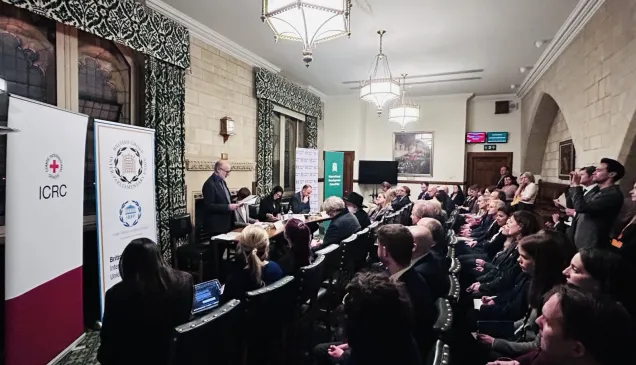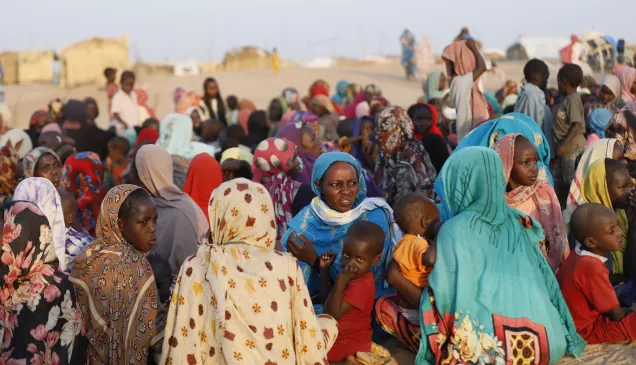I’ll talk to anybody if it helps us reach people in need – humanitarian networking from Afghanistan to Myanmar
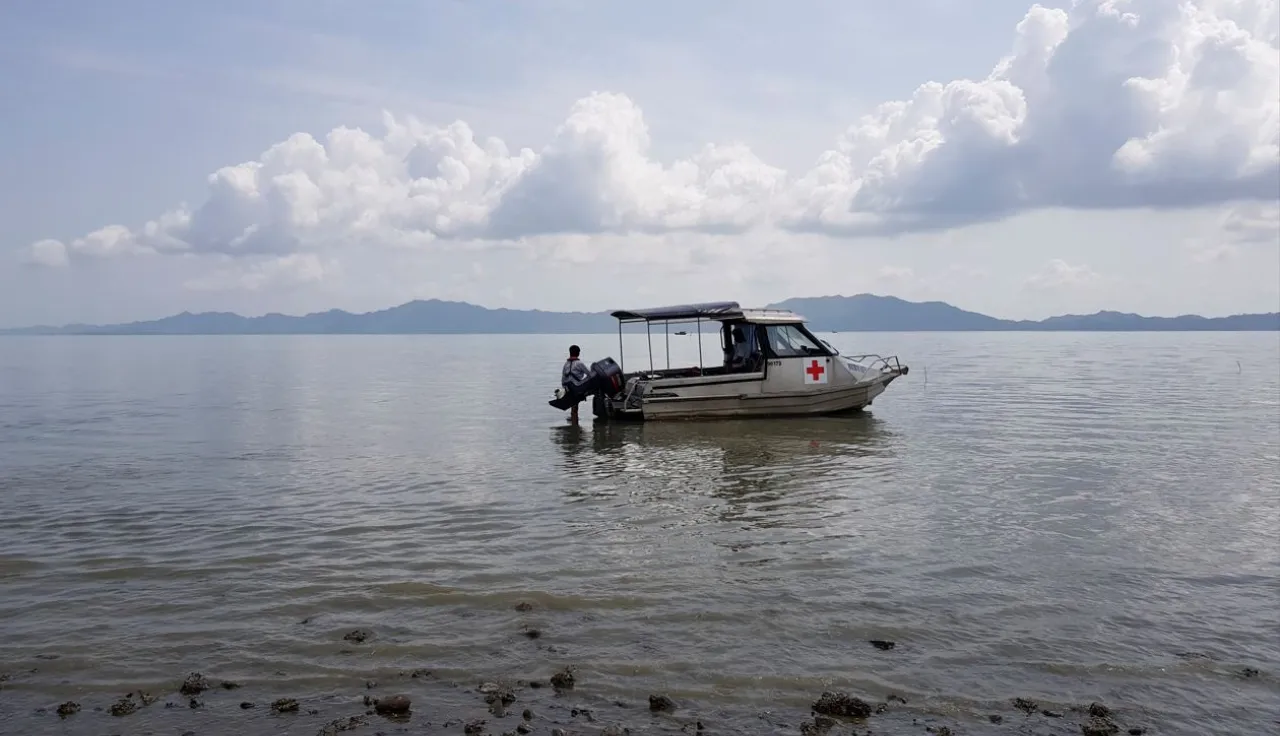
Networking can be nerve-wracking for anyone. But imagine trying to network in another language, in a different country, amid ongoing conflict... Charlie Dorman O’Gowan explains the challenges and rewards.
Tell us what a 'Humanitarian Networker' is?
It's a good question! Sometimes even some of my ICRC colleagues think that I'm something to do with IT networks.
But essentially, my job is to build relationships in order that more people understand who ICRC is, and hopefully they then start to advocate for us and for our work in relation to conflict.
I talk to people from whichever party to the conflict it may be.
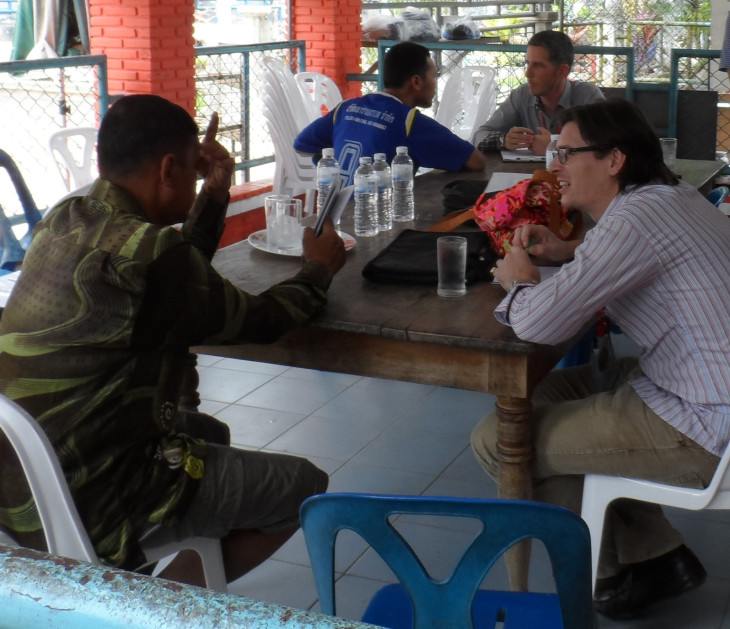
The hope is that this networking leads to us having better access to people in need, because people trust us, and they understand what we're doing.
It's also important to learn from local communities; to see how they view the humanitarian challenges they face, and how humanitarian principles are already encompassed within their local culture and religious teachings.
The goal is it opens doors to what we call protection dialogue; discussing things like how to improve the behaviour of combatants, visit detainees and put families back in contact with each other. And it's an opportunity to raise any issues that we have seen whether through the media or talking to people who've told us about incidents which they allege have taken place.
It all really starts with just finding a human connection. That's basically what we try to do; to build trust.
But we're doing it in a completely different country with a completely different culture and often in a different language as well...these are all layers that can make it quite complex.
A new posting with ICRC
I started work with the ICRC as an interpreter, working first in Afghanistan and then Thailand. I've since worked as a humanitarian networker with the ICRC's Global Affairs unit in Thailand, Indonesia, Malaysia, Bangladesh, the Philippines and again in Afghanistan.
Currently I'm based in Myanmar, and my role here is deputy head of sub delegation in a place called Sittwe, in the far west of the country, close to the border with Bangladesh.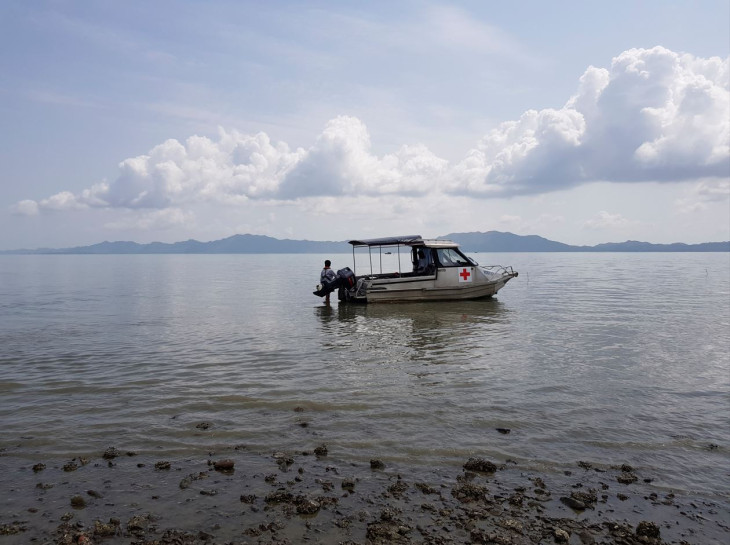
What is the ICRC doing in Myanmar?
The ICRC has been present in Myanmar for over 30 years, providing humanitarian assistance to people affected by armed conflict and other situations of violence.
Last year (2022) we:
• Reached nearly 140,000 people with food and 277,000 with essential household items
• Helped families of 859 missing people to know the whereabouts of their loved ones
• Supported almost 2,000 people upon release from prison, allowing them to get safely home
• Provided almost 300,000 people with water, sanitation, housing and health infrastructure
• Helped vaccinate 113,000 people, including 31,000 children under 5
• Supported over 4,200 people with physical rehabilitation services
Find more inspirational stories and key facts and figures on our Myanmar page.
In my role here there's a lot of coordinating and making sure that the different ICRC departments are talking to each other, making sure that our response is appropriate to the needs of the population.
I think this is probably the first long term mission that I've taken with ICRC where I don't speak any of the local languages. So for me, this is a whole new experience.
I'm very much reliant on local colleagues who speak the language. I work very closely with them, and they also advise us on do's and don'ts culturally.
New ways of working
It's easy to get stuck in a very traditional way of working, where you have a formal meeting with one party or the other, and you discuss things in a very official frame, and then perhaps you provide them with a written report.
We still need do that – it's a very important part of our work. But I think it needs to be complemented by much more informal engagement as well.
Many times we'll have the most interesting interaction when we're not in an official meeting in our suits.
It might be when we're sitting down having a meal together in a much more relaxed atmosphere.
It's then that people will feel that they can open up a bit more about the challenges that they're experiencing, which can often play into how combatants behave in the field.
Luckily, in ICRC, there is space for brainstorming, and for more creative approaches, which is where things like the religious circles networking comes in. The ICRC's Global Affairs unit in Asia has been pioneering a programme on Buddhism and international humanitarian law (IHL) - engaging with Buddhist scholars, monks and even soldiers to understand how Buddhism can contribute to reinforcing IHL.
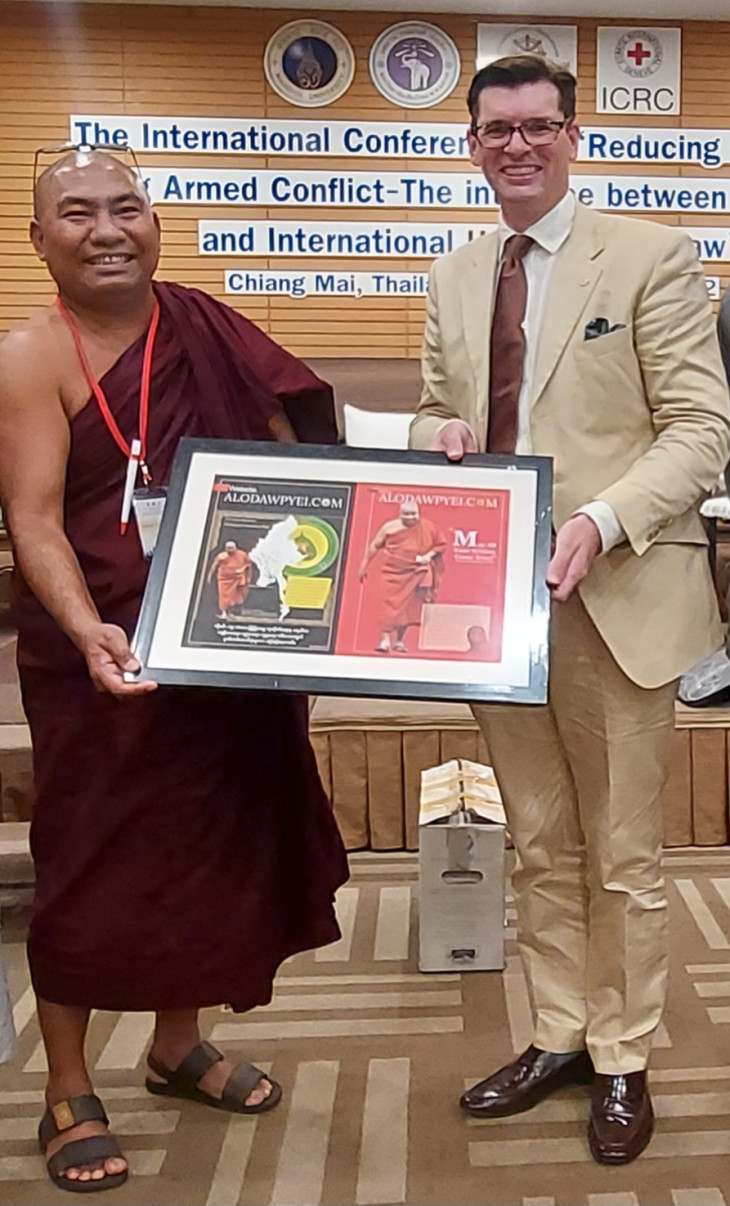
This is of mutual interest to the ICRC and these Buddhist circles, so it opens doors to further interaction – not just at the academic or theoretical level, but also at the working level in communities, where it really matters.
Stand-out memories
When you're networking, you might be able to see that you're starting to build more and more connections, but that can be quite intangible.
It's really the end result we're looking for - how does the situation improve for people on the ground?
There are emotional moments certainly, such as when you've met someone in prison, perhaps over several years, then finally, they're released, and you meet them outside to follow up and see how they're getting on.
Or when you're able to help reconnect or reunite a family that have been lost to each other for years.
One thing that's always powerful is when you've been building a dialogue with an armed group on things like IHL and protection of civilians, and then you finally start to see changes in their own communications within their ranks.
You hear them start to talk about these principles of proportionality, precaution and other key elements of IHL, and that really demonstrates the tangible impact of what we're doing.
That's when you realise that what you're doing is having a very positive effect.
From Ireland to Myanmar
I'm originally from a little town called Cootehill, in County Cavan. My family then moved to Northumberland, England, where my mother is from.
I have both nationalities, but I consider myself Irish. Most definitely.
Currently I speak seven languages... English, Pashto, Persian, Thai, Lao, Malay, Arabic. Some of them better than others. Right now, I'm picking up Burmese along the way and trying to learn Irish.
I have a couple of friends who try to help me with the Irish, but I can't say I'm the best student - and growing up in England, I missed out on Irish lessons.
A beautiful country
Myanmar has been suffering from armed conflict in one form or another for decades and decades.
But it's also an absolutely stunning country. The people are a joy to work with. There's incredible history here.
I often think that back home, it's not understood well. It's not in the news, perhaps enough.
It's really important that people don't forget that Myanmar is still here, and that violence continues to affect people every day.
New technologies
Networking has begun to happen virtually, to an extent. We certainly saw an increase in that when COVID started.
We went suddenly from doing seminars and having meetings with contacts in person, to having to do everything online. It's not the same though.
I don't think you can ever beat face to face meetings and especially if you're going to be discussing sensitive issues.
For many reasons, it's better not to do that online.
You know, it's a good backup if you want to maintain contact. But for me, there's nothing that can beat sitting down with a person, perhaps over a cup of coffee, or a meal, and simply having a conversation.
It all starts with that.
This piece was published by the ICRC team in the UK and Ireland. Find out more about our work and follow us on Twitter.

